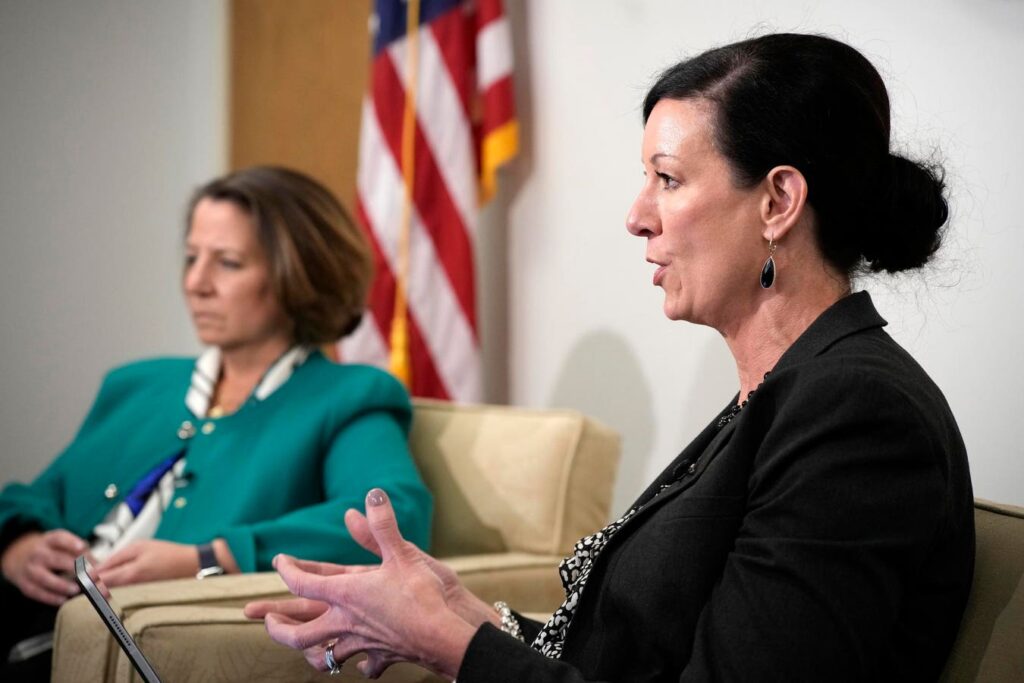Colette Peters, the director of the federal Bureau of Prisons (BOP), recently emphasized the need for a cultural overhaul within the Bureau during an interview, highlighting new mission objectives aimed at bettering the inmate experience. This comes on the heels of her predecessor’s resignation, influenced by increasing pressure from Congress regarding prison management and inmate treatment. Among the significant issues that have arisen is the implementation of the First Step Act (FSA), a transformative piece of legislation passed in December 2018 aimed at reforming how federal prisoners earn sentence reductions and engage with their communities as they approach the end of their sentences. Although meant to improve the system, the FSA has faced numerous complications and inconsistencies in its execution, leading to frustration among inmates and their families.
The FSA introduced a mechanism allowing mostly low-risk federal prisoners—those without violent criminal histories—to earn credits by participating in educational and vocational programs, ultimately enabling them to reduce their sentences or enhance conditions of release, such as home confinement. While this concept appears straightforward, the BOP’s evolving policy and processes regarding the calculation of credit hours have resulted in many prisoners being held longer than anticipated. This lack of transparency and delayed responses to inmates’ inquiries about their release dates has contributed to growing discontent within correctional facilities. Reports indicate that prisoners have taken to asking their case managers about their impending release dates, a question that has proven increasingly difficult to answer under the current system.
Tensions within the BOP have arisen, particularly illustrated by a recent incident in Montgomery, Alabama, where inmates participated in a collective act of civil disobedience by refusing to eat in the dining hall. Although meal attendance is not obligatory, this organized protest led to serious repercussions, as 27 detainees were transferred to another facility for disciplinary reasons. The incident highlighted the climate of unrest among inmates caused by the opaque implementation of the FSA, coupled with their desperate need for clear communication regarding their status. Following this protest, authorities instituted modified operational procedures at FPC Montgomery to monitor the situation, shedding light on the burgeoning issue of inmate frustration that can often lead to desperate acts of rebellion.
Colette Peters has acknowledged that while progress has been made in rolling out the FSA, significant challenges remain that have not yet been adequately addressed. In July 2024, she released a video aimed at clarifying the principles underpinning the FSA and detailing the credits’ calculation process. However, critics argue that the video may have oversimplified the real obstacles, particularly the crisis surrounding the availability of halfway houses for community custody placements. While Peters illustrated that the changes would lead to maximum community time for qualified inmates, the stark reality is that housing shortages undermine these claims, leaving many inmates stranded despite qualifying for release.
Reports of similar protests from different prison camps illustrate a wider dissent among prisoners advocating for more clarity and communication regarding the FSA and their potential releases. Those engaging in civil disobedience face significant consequences, including the possibility of being placed in restrictive housing, losing good-time credits, and being transferred to other facilities. This is a disheartening scenario resulting from an accumulation of frustrations, as prisoners yearn for transparency and compassion in the face of bureaucratic delays and uncertainties. Many inmates feel left in the dark, navigating a frustrating system that seemingly neglects the human aspect of incarceration; the hope of freedom can feel unreachable.
The consequences of these actions and the overall atmosphere in correctional facilities leave many questions unanswered about inmates’ conditions and futures. For the 27 men who faced disciplinary actions, the duration of their confinement in punitive housing remains unclear, and communication with loved ones has dwindled, creating distress among families who struggle to know when they might reconnect. The current state of affairs at BOP highlights a crucial moment in the conversation about criminal justice reform—emphasizing the urgent need for a more compassionate and consistent approach to managing inmate care, rights, and communication. Addressing these grievances may pave the way for a more humane and effective correctional system that prioritizes rehabilitation and reintegration into society.

